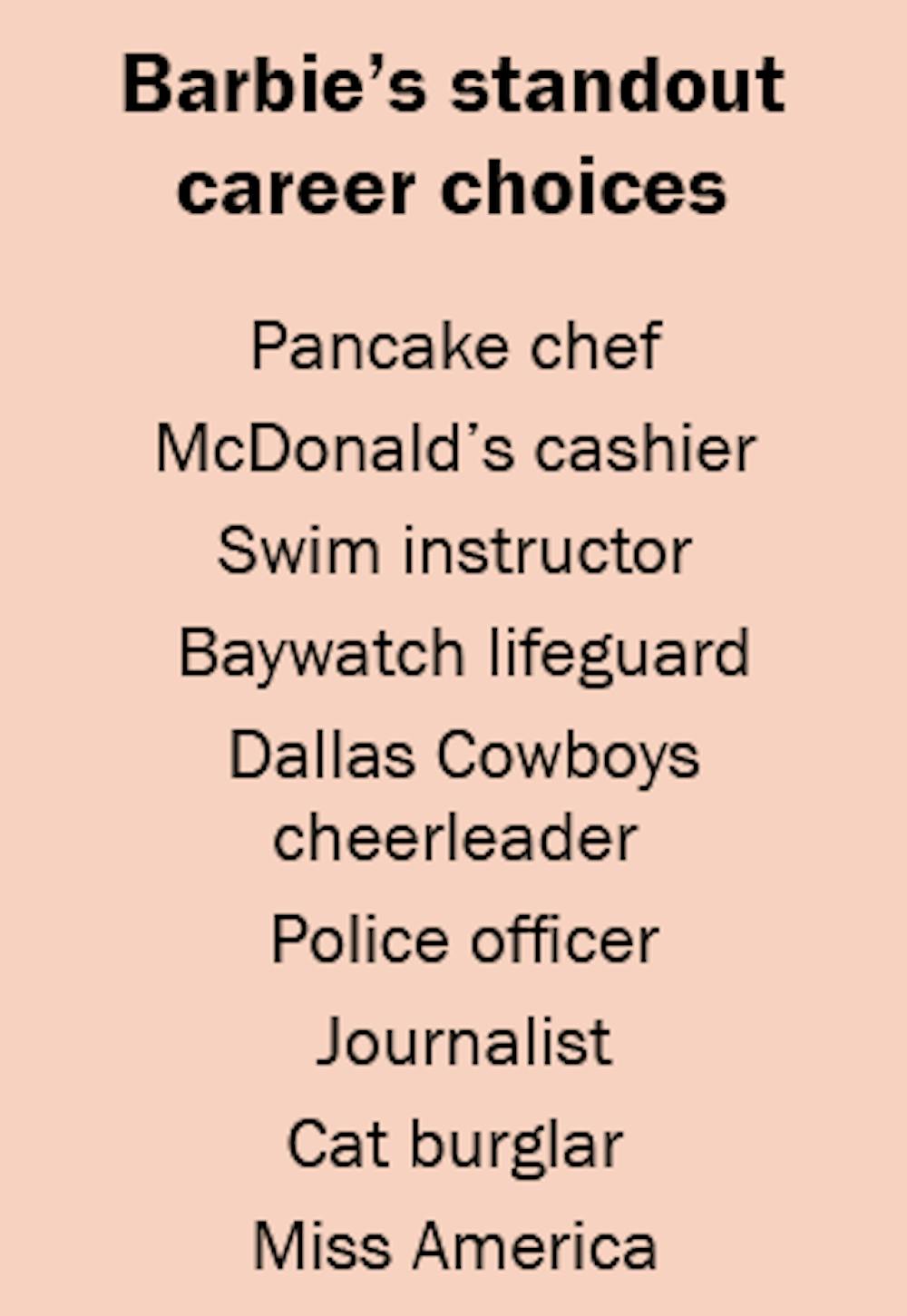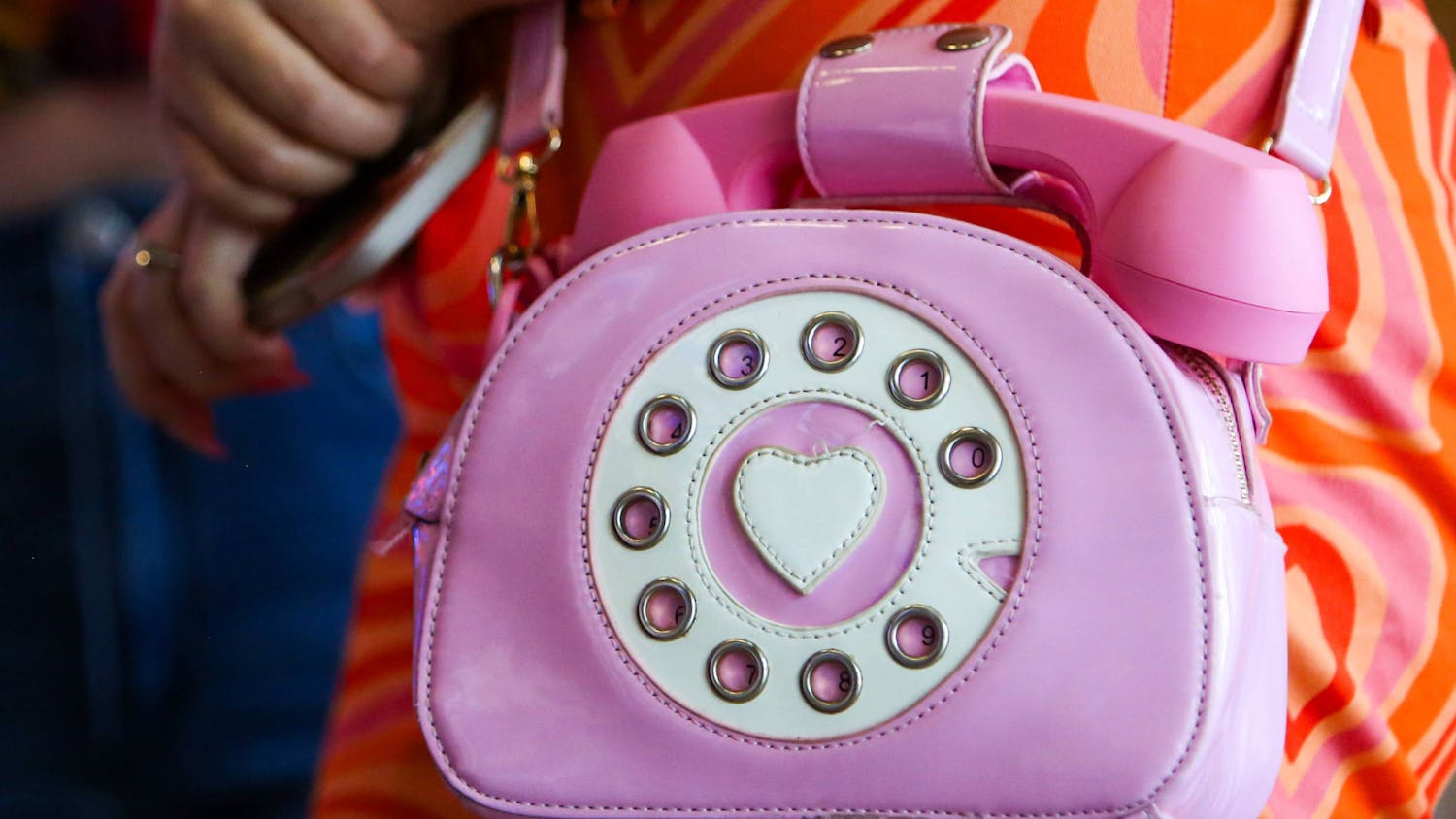A feminized spud may empower more young girls than Barbie.
A study done by a pair of researchers at Oregon State University found that playing with Barbie dolls can affect how girls view their career possibilities. And even though Barbie’s resume includes president, flight attendant and astronaut, Mrs. Potato Head might put her out of the job.
“I wasn’t surprised, unfortunately,” said Jasmine Esmailbegui, a 21-year-old UF criminology and psychology senior.
The study’s researchers explained their findings in an article titled “Boys Can Be Anything: Effect of Barbie Play on Girls’ Career Cognitions,” in which 37 girls from 4 to 7 were randomly assigned a Doctor Barbie, Fashion Barbie or Mrs. Potato Head to play with.
Each girl played with her assigned toy and was shown pictures of 10 workplaces after. They were asked if they could perform the job that was represented by the setting when they got older and if a boy could perform it when he got older.
Girls who played with Mrs. Potato Head thought they could have more of the jobs than the girls who played with either kind of Barbie.
However, the majority of the participants thought more of the jobs could be done by boys than girls, even if the job was female-dominated.
Esmailbegui, who is the director of Women’s History Month for the Women’s Student Association, said because the study’s sample size was so small, she questions how reliable its findings were.
“But, to me, the results line up with common sense,” she said.
Julie Coutu, a 20-year-old UF women’s studies sophomore, said she agrees the sample sizes were small but said it makes sense the girls felt the way they did.
Coutu said although Doctor Barbie suggests girls can be doctors, she is “still a plastic doll that’s upholding these unrealistic standards of beauty.”
Mrs. Potato Head may be a feminized version of an inanimate object, but she said it doesn’t put the same expectations on girls like Barbie does.
Laura Guyer, a senior lecturer in UF’s women’s studies department, said Barbie represents one way society communicates to young girls, and boys have equivalents — like G.I. Joe — that establish certain expectations for them as children.
Guyer said she isn’t convinced dolls like Barbie or G.I. Joe are the only answer to the societal pressure put on children, but she said she does think the study brings up questions worth looking into.
But Esmailbegui said while going through motions like applying makeup, she wonders where she got the idea she has to look a certain way. Plastic toys like Barbie dolls can have an impact, she said, and it can be negative.
Daniella Gennaro, a UF 19-year-old finance sophomore, said before college she never thought about how she had the possibility to hold positions like an electrical engineer or CEO.
“Women can break what we were taught as young girls,” said Gennaro, who is a women’s studies minor.
The study showed that even though there are several reasons for the low number of women in certain occupations, one may be the impact of gender roles placed on children.
“You’re never going to be a grown-up potato, but you are going to be a grown-up woman,” Coutu said. “And you have no pressure to be a potato, but you do have pressure to be a grown-up woman, and (Barbie) is telling you this is what a grown-up woman looks like.”
[A version of this story ran on page 9 on 3/20/2014 under the headline "Taters over haters: Potato Head helps girls transcend Barbie World"]






